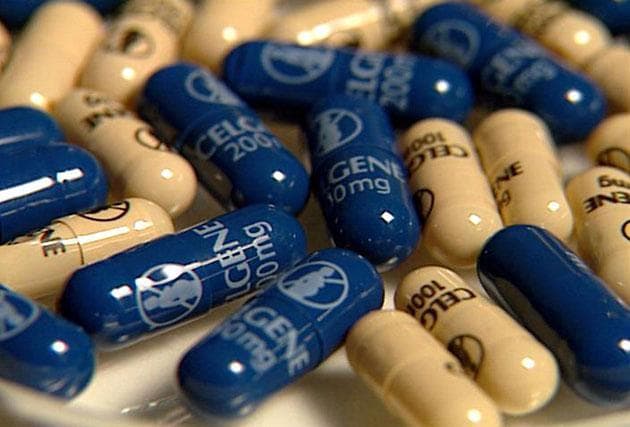Advertisement
New Study Will Examine Drug Safety In Pregnancy
Resume
A new national study could give pregnant women more information about which medications are safe to take and which ones could harm their developing babies, and Boston University's School of Medicine is playing a key role in the research.
Some pregnant women who think they're being careful about what medications they take are actually putting their babies at risk. Dr. Tara Dumont of Boston Medical Center sees this all the time.
"Just yesterday I had a young lady who was taking Advil, and that's a medicine you don't want to be taking at certain stages of pregnancy," said Dumont, a clinician with BMC's Women's Health Group. "So even over-the-counter stuff — women may think it's safe, but it can be not safe."
You may be surprised to hear that most drugs on the market haven't been specifically tested in pregnant women. That's because studies designed just to find out if a medication could harm a fetus are considered unethical.
Dumont said that leaves doctors and pregnant women to make judgment calls based on limited research.
"There's so much that's unknown," she added, "and even the data we have isn't great data."
Now, a group of researchers nationwide wants to systematically review all medications and how they affect pregnancy. Over the next several years, they'll study thousands of pregnant women and track what drugs — including vaccines, over-the-counter medications and herbal products — they're consuming.
"Women have been taking these drugs for decades and, in fact, we haven't had sufficient information to be able to say that, yes, they're safe," said Dr. Allen Mitchell, director of the BU School of Medicine's Slone Epidemiology Center, which — along with a national nonprofit organization that studies birth defects — will gather data for the project.
Children With Birth Defects
The researchers will also study women who have children with birth defects and try to determine what drugs may have caused those problems.
The research won't just help pregnant women know what drugs not to take; it will also help them decide which drugs they should take.
"The bottom line," Mitchell added, "is that, for the most part — and this is true for the over-the-counter drugs, as well — whatever the label says, we have relatively little experience with the drug in pregnancy."
As a result, he said, some women end up taking medications during pregnancy that they shouldn't, while others put their babies at risk by not taking drugs that are relatively safe.
"Some women who are asthmatic will reduce or go off their medications because they're fearful of doing harm to their baby," he said, "and, ironically, their asthma, by getting worse, might do more damage to the baby than the medications themselves."
Mitchell also says severely depressed women who stop taking antidepressants during pregnancy are at high risk of suffering a relapse, which could jeopardize their babies.
So more research into antidepressants and their possible effects on pregnancy will help pregnant women know which ones, if any, are safest to take.
"Many medications — including the antidepressants, including asthma drugs — really need to be taken by certain women to keep them healthy and their baby healthy," Mitchell said.
Examining Asthma Medications, Flu Vaccines, Antivirals
Initially, the study will focus on respiratory drugs, including asthma medications, flu vaccines, and antivirals such as Tamiflu that are used to treat the flu.
Even though most flu vaccines are now considered safe for pregnant women, there's more research to be done, Mitchell said.
"What we want to do is conduct much more detailed and rigorous studies to be absolutely sure that there aren't small risks being missed," he said.
Mitchell cautioned that it's nearly impossible to say that any drug is totally safe. And sometimes the benefit of a drug outweighs its risk, because even if there are possible dangers, they may be minuscule.
Mitchell says detailed new information about a wide range of drugs will lead to better drug labeling, and better labels will help pregnant women know which drugs to avoid and which ones they can take with confidence.
The new study, called the Vaccines and Medications in Pregnancy Surveillance System, is being launched by the American Academy of Allergy, Asthma and Immunology with the backing of five federal agencies.
This program aired on February 26, 2010.
